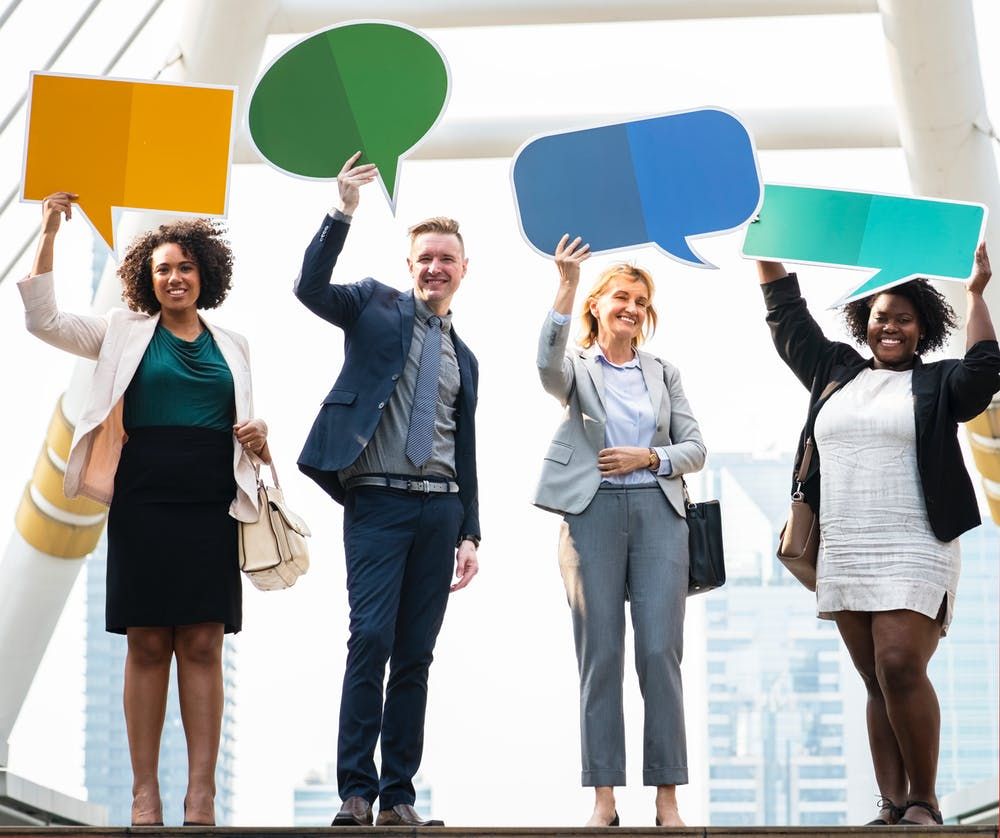Be On The Line
Jun 06, 2019 • 37 views
It's not so much what we say,
As the manner in which we say it.
It's not so much the language we use,
As the tone in which we convey it.

Communication comes from the Greek
word ' communis ' which means to make common, to share ideas, thoughts and feelings either verbally or non - verbally.
Symbols such as words, signs, pictures, sounds, etc. help to transfer an idea in communication. But symbols must be understood by the person with whom we intend to communicate. Both must assign the same meaning to symbols used, otherwise, there is mis - communication. Without common understanding of the symbols, there can be no communication.
Verbal communication is with the use of words, spoken or written which are mutually understood. It needs the presence and attention of both the persons.
Non - verbal Communication is an important and sometimes even more important than verbal communication. In a normal communication process, only 12% is verbal, while 88% is non - verbal communication. Similarly, one gives a pat, an embrace, a handshake to communicate powerfully. What you are and how communicate speaks much more than what you really are talking. In verbal communication, we can cheat one another but in the non - verbal, it is difficult to do so.
Factors that begins communication:
Physical factors (eg. lipsing, stammering, hard of hearing);
Psychological factors (powerful emotions like nervousness, fear, shyness);
Cultural barriers like language, different social perceptions (eg. nodding the head north to south could means 'yes' to some and 'no' to others and east to west nodding what mean 'no' to some and 'yes' to others.)
'Halo' effect: When we like a person, we are open to what she or he says while if we do not like a person or trust a person, we immediately close ourselves to what she / he says.
Factors that make communication effective:
(a) Clarity in expressing oneself by being clear about what one wants to communicate.
(b) Politeness that endears oneself by using words like Please, Excuse me, Thank you, Sorry.
(c) Listening attentively to the other and checking out whether the other has understood me and I have understood him/ her through the feedback which may either be verbal or non - verbal.
We are not born with communication skills and hence we need to learn them. Communication is an art that is learnt and everybody is capable of learning it.
In order to relate at a deeper level, we need to learn effective skills of communication. Some of these skills are:
• Willingness to learn the art of deeper communication.
• Willingness to be transparent and trusting.
• Willingness to take risk.
• Willingness to accept what others say without being judgemental.
Deeper communication is the ability that is developed to go beyond day to day talk such as weather, politics, fashion, etc into talking about feelings that are painful, shameful and difficult and learning to walk with one another in their journey of life.
° The person who says what he likes ends up hearing what he doesn't like.
° Choose what you say rather than say what you choose.
° Excessive talking does not mean communication - talk less; say more.
° A fool speaks without thinking; a wise man thinks before he speaking.
